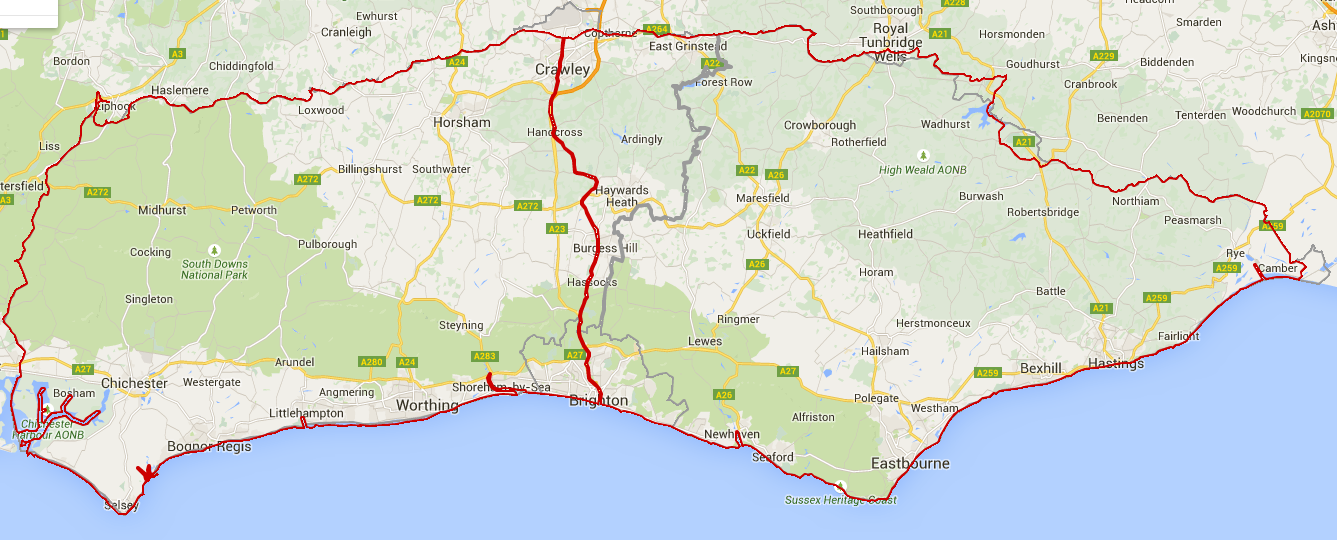Flood Risk Assessment for Sussex

Based in the heart of Sussex, the Unda team have a wealth of local knowledge, delivering bespoke Flood Risk Assessment reports for individuals and businesses. Working with an array of property professionals, landowners and farmers, Unda has a renowned reputation in Sussex for ensuring successful planning approval for client’s developments first time.
If you would like more information about Flood Risk Assessments and Drainage Assessments for planning permission or other reasons then call us on +44 (0) 1293 214444 or fill out the form on the right and our friendly team will get back to you as soon as possible.
The purpose of this page is to bring together the various bits of information available on flooding in Sussex including the Arun District Council Area. This includes emergency contacts and rest areas as well as the various government bodies and organisations that can assist during a flood and also the planning information around flooding and drainage in Sussex.
Sussex Local Flood Risk Management Strategy
Following the significant floods in 2007, one of the direct actions from the Pitt Review was local authorities were given new powers to help manage local flood risk in a more coordinated way by the Government.
The Flood Water Management Act 2010 requires county councils to lead the coordination of flood risk management for surface water, groundwater and smaller watercourses in their area. East Sussex council has published their own Local Flood Risk Management Strategy, which sets out how they plan on managing local flood risks.
Sussex has two councils, East and West, who are working with organisations to manage local flood risks in Sussex. Flooding from surface water, groundwater and ordinary watercourses (an ordinary watercourse is any river, stream or channel which is not identified on the Environment Agency Flood Map as a Main River) are defined as ‘Local Flooding’. The Environment Agency deals with flooding from the sea, main rivers and reservoirs.
East Sussex County Council.
Has produced a Preliminary Flood Risk Assessment to assess local flood risk across the county, as required by the Flood Risk Regulations 2009. In addition, they have published a Local Flood Risk Management Strategy which sets out how they plan to manage local flood risk, in accordance with the Flood and Water Management Act 2010. They are currently undertaking a number of Surface Water Management Plans to identify specific areas at risk of local flooding and what actions could be taken to reduce the risk.
They are also working with third parties to develop Sustainable drainage systems (SuDS) as part of new management.
West Sussex Council.
The flooding experienced in West Sussex in 2012, due to a massive amount of unpredicted rainfall, highlighted many of the planning and emergency response challenges faced as a county. Therefore management have assessed strategies,
West Sussex have produced A Local Flood Risk Management Strategy (2013-2018) and there aims are:
- To ensure the risk from flooding and erosion is properly managed by using the full range of options in a coordinated way.
- Manage the risk to people and their property;
- Achieve environmental, social and economic benefits, consistent with the principles of sustainable development;
- Facilitate decision-making and action at the appropriate level – individual, community, or local authority, river catchment, coastal cell or national.
Flood warnings service for Sussex
The official GOV.UK website, in conjunction with the Environmental Agency, offer a live flood warning service and five day forecast.
Lead local flood authorities are responsible for managing the risk of flooding from surface water, groundwater and ordinary watercourses and lead on community recovery, including making sandbags available to those that need them.
Contact the East Sussex Flood Risk Management Team on 0345 60 80 193.
Other real time information available on monitoring local river levels, river flow rates and groundwater levels is available from Shoothill.
Emergency flood contacts in Sussex
If there is a flood
- If you are in a life threatening situation, call the emergency services on 999.
- To report flooding from a blocked sewer or sewage flooding to your water and sewerage company.
- Keep an eye on your local council website and Environment Agency
Important telephone numbers & Twitter feeds
- East Sussex County Council – Emergency contact during office hours: 0345 6080190 or Out of Hours Emergency Flood Risk Management Team on 0345 60 80 193. Twitter feed at @EastSussexCC.
East Sussex County Council does not provide sandbags but some district or borough councils may provide them, or you could buy bags and sand from DIY stores and local builders.
- Eastbourne Borough Council – flooding and sea levels
- Hastings Borough Council – emergency planning
- Lewes District Council – managing flooding
- Rother District Council – flooding
- Wealden District Council – flooding and severe weather
- West Sussex County Council – Emergency contact during office hours: 01243 777100. Twitter feed at @WSCCNews
If you are flooded contact:
- West Sussex Fire & Rescue Service Phone: 01243 786211 or email wsfrs@westsussex.gov.uk for non-emergency situations including the pumping of properties.
- East Sussex Fire & Rescue Service Phone: 0303 999 1000 or email enquiries@esfrs.org for non-emergency situations including the pumping of properties.
- The Citizens Advice Bureau may be able to offer advice on obtaining money in an emergency and dealing with insurance companies (contact your local office).
- NHS Direct can offer advice and information if you have health concerns during or after a flood, call 111.
- The Highways Agency is responsible for major roads in the UK. For further information on the roads the Highways Agency is responsible for please visit the Highways Agency Or alternatively to report a flooded road online click here. To report road flooding in West Sussex phone 01243 642105 or email: highways@westsussex.gov.uk or report on online.
Call For Your Free Quote Now

If you need a quote or to discuss your requirements in more detail contact Jackie Stone, one of our experienced Flood Risk Consultants.
Call 01293 214444
Or Fill Out The Form Below
Flooding from watercourses, other than main rivers
Watercourses, other than main rivers, are the responsibility of riparian owners. You are a riparian owner if your property or land is on, or very near, a watercourse. Riparian owners have a duty to keep the watercourse clear of any obstruction to flow. The Council can serve legal notices on riparian owners to deal with obstructions.
Private drains
Private drains are the responsibility of the homeowner/occupier. Your local water company or drainage contractors will fix the damage for a fee.
Impact of flooding on people and the economy of Sussex.
Flooding has a significant impact on the people and economy of Sussex. While it is not possible to prevent all possible local flooding, the relevant authorities, local communities and businesses can work together to reduce the risk and minimise the damage it can cause.
There are areas in Sussex that are at very low risk of flooding, and also those at very high risk which include; Eastbourne, Seaford, Shoreham, Worthing, Lancing, Hastings, Lewes.
Lewes Flood Action
Lewes Flood Action Group started in 2001 at a meeting of hundreds of Lewes people who were flooded in 2000 and wanted to ensure that the town received proper protection from river flooding in the future. They have campaigned ever since at both local and national levels for a fair deal for Lewes in the funding and provision of adequate flood defences.
Flood Support UK
Flood Support UK provides information to help people to prepare for, work through and recover from flooding in the United Kingdom. They provide advice about the steps to take preparing for a flood, dealing with a flood and cleaning up after a flood. We have useful guide on types of flooding in the UK, assessing the risk of home flooding, how to know if a flood is coming, ways to prevent home flooding, social media links and a creating a personal flood plan.
National Flood Forum (NFF)
The National Flood Forum (NFF) is a national charity dedicated to supporting and representing communities and individuals at risk of flooding. We do this by:
- Helping people to prepare for flooding in order to prevent it or mitigate its impacts
- Helping people to recover their lives once they have been flooded
- Campaigning on behalf of flood risk communities and working with government and agencies to ensure that they develop a community perspective.
The NFF works with government, agencies and local authorities on issues such as flood risk insurance, property level protection and recovery to ensure that the needs of flood risk communities are represented.
The NFF also provides a strong and independent voice that represents the interests of people affected by flooding. This includes working closely with national and local government agencies, flood protection companies and the insurance industry, as well as flood action groups to ensure that the views and issues of those at risk of flooding are taken into account when decisions are made.
If you would like your forum or community group to be added to our page please contact Unda Consulting at enquiries@unda.co.uk.